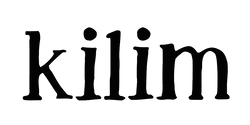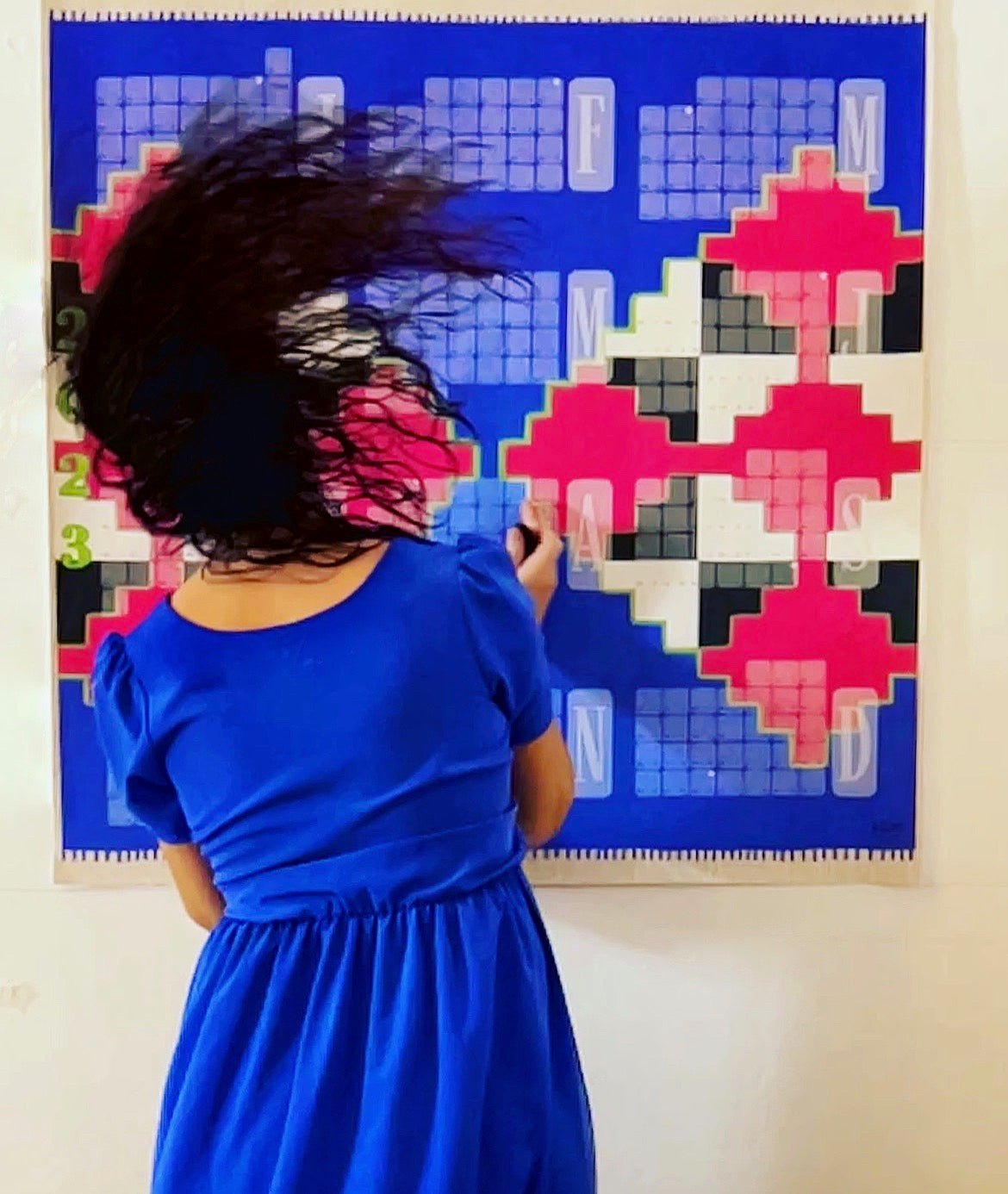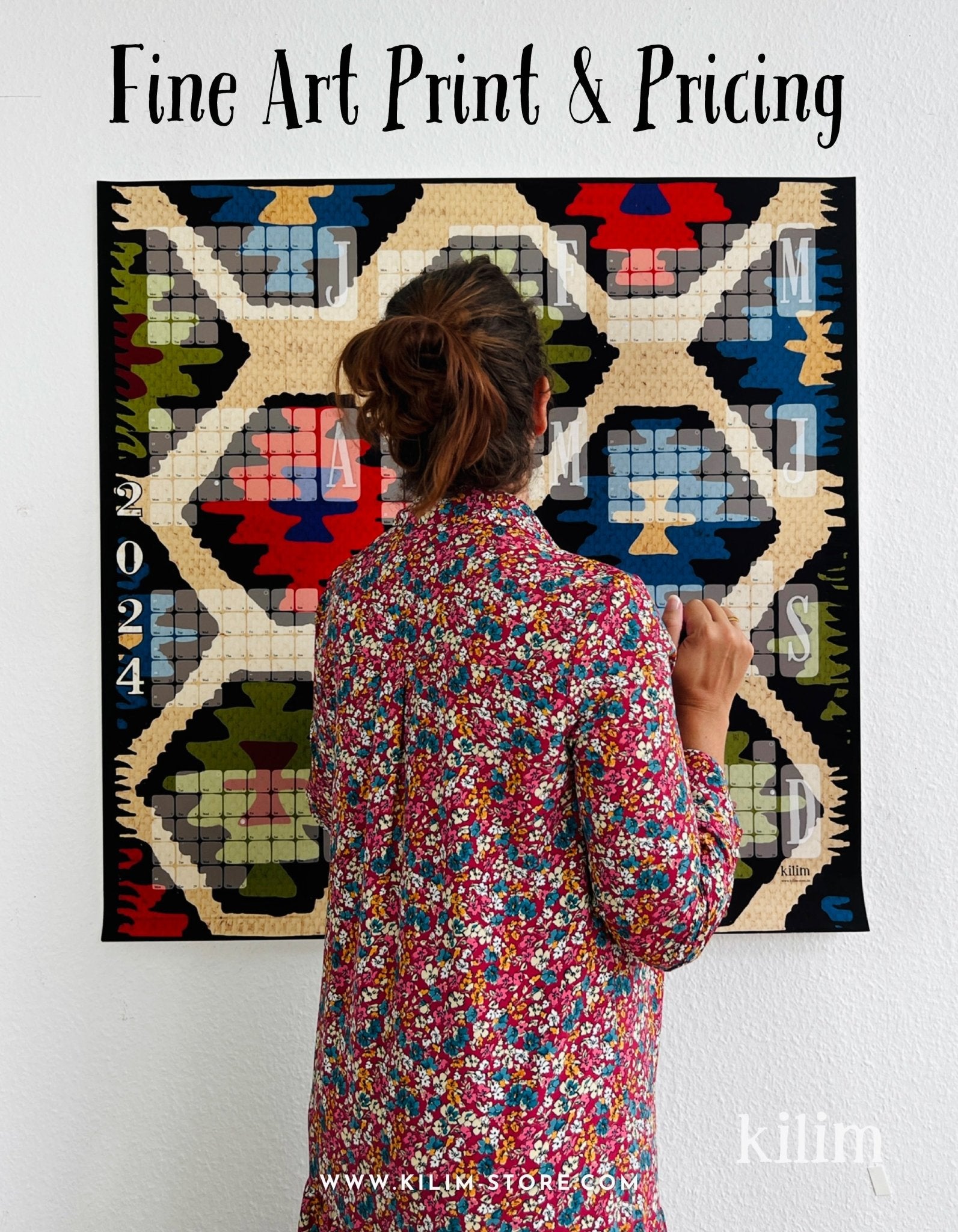In an age where smartphones, tablets and computers dominate our daily lives, the idea of an analog calendar may seem old-fashioned. But there is something distinctive and valuable about a physical calendar that digital alternatives simply cannot offer.
overview, visual presence
An analogue annual planner, especially the wall calendar, gives me a constant visual overview of my year; a constant reminder of upcoming appointments and plans, but also of nice things, like meeting up with friends, me-time, a vacation, perhaps still far away but already present on the wall. The thought of having everything important and nice at a glance makes me feel better and reduces the chaos in my head.
Art and Aesthetics
As a purely functional aid, a digital calendar is always only a means to an end; an analog calendar is clearly more: for example, a sensual, good-looking companion that, like my Kilim calendar ( https://kilim-store.de/collections/all ), beautifies the home or office, exudes good cheer with its colors and patterns and stimulates the brain to creative processes when planning. And that's exactly what it's about, because life isn't just about obligations and appointments.
Inspiration, positive vibes, your own ideas guide your life planning in an individual direction, a pool in which self-confidence, self-esteem and your own decisions await you. Despite work and being tied to a daily routine, creative thought structures can inspire our lives enormously and encourage us to do more. Even if it is just easier organization, a deeper, multidimensional perception of time or the thought of a hobby, a passion that was buried for a long time or was not allowed to have a place in our lives.
Haptic Experience & Commitment
Not only the eye, the sight, but also the hand, the touch, stimulates creative processes. Entering something in an analogue calendar, writing, stroking the paper, sharpens our senses. What I write, I experience. What I touch is.
In addition, all plans, thoughts and appointments cannot be deleted or replaced quickly - like on a mobile phone - just as cancelling a meeting with a friend does not simply mean deletion. It is binding. Which does not mean that there cannot be an alternative. Nevertheless, it is there, it is written there, it is real. But because it cannot be replaced with a few clicks, we enter it more consciously, we think more deeply about our decisions, plans and our time.
Planning together - the advantages of an analogue family calendar
Of course, a digital calendar can also be used as a connected user to plan a business week, a couple's day or a family's day. Strangely, this seems to feel less binding for many people. Perhaps because the world on the internet is faster-moving and a lot of things change there in a short space of time.
Consider that in the past we were able to arrange to meet at a specific place for a specific time without cell phones. Since cell phones and WhatsApp have been around, people are constantly texting each other beforehand despite having made an appointment, and call each other uncertainly just before the meeting point: "Is it still tomorrow?", "Where exactly are you?", "I'll be two minutes later," etc.
When we used a shared digital calendar, my husband constantly asked me about appointments that were set there. I don't want to say never, but much less often, that happens with our analogue family calendar. Here, the idea of an easy and permanent overview comes into play, which creates trust and eliminates chaos in the head beyond digital distraction.
We also love to enter some appointments together as a family. It is an experience in itself and creates a connection between the different lifestyles and requirements that exist in almost every couple, team or family. My son loves to enter our birthdays with stars and the nice things that will happen in the next two weeks. When I watch him, I think that you don't have to be a calendar nerd like me, but that there is something about planning that is deeply rooted in people: the desire for structure, the desire for anticipation, capturing this incomprehensible journey through time towards understanding...
Tradition, a rite: the celebration of a year
Something for more traditional people & calendar nerds like me: I love looking at this tapestry woven over time at the end of the year: a huge quilt of plans, experiences, memories, moods, meetings, places, successes, feelings, wishes. I then sum it up, let it happen again. I realise that there are some things that I would do differently next year or things that I definitely want to repeat. I am often surprised by this moment because, despite my planning, many things turn out differently, something grabs me in a completely different place, something tastes contrary to my expectations, a meal, a place, a person makes me laugh or love something that I would never have expected.
I simply love this historical testimony, this carpet. For me it is a true gift that I am taking down and saying goodbye to outside. Ready for a large, empty new wall: ready to weave new impressions and many design possibilities for everyday life.
Conclusion
Visual presence, overview, haptics, writing and commitment, inspiration, the stimulation of creative processes, a partner and family meeting point, ritual and reflection, all of this could never be offered to me by a digital calendar; which does not mean that both (analog and digital) are not practical. And yet, in our increasingly digital world, I find an analog calendar to be increasingly attractive and indispensable as a time, art, life document and design tool. That's how I feel. How do you feel about it?
---
FAQ: Advantages of an analog calendar
Visual presence and clarity of the wall calendar
An analog calendar creates a visual overview that is always present. It reminds us of important appointments and plans, while at the same time bringing beautiful moments such as meetings with friends or vacations into focus. This constant overview reduces the chaos in your head and helps to structure your everyday life better.
Haptics and Creativity
The feel of an analog calendar encourages creative processes. Physically entering appointments, stroking the paper and consciously writing activates our senses and stimulates the brain to think more intensively about plans and ideas. Unlike with digital planners, planning becomes a tangible, creative act.
Bindingness through Handwriting
Writing in an analog calendar gives appointments more bindingness. Writing down plans by hand makes them more tangible and less interchangeable than entering them into a digital device, where appointments can be quickly deleted or changed.
Family planning and joint organization
An analog calendar becomes the central planning tool for couples and families. Entering appointments together creates structure and promotes communication. Everyone can see the entries and participate in the planning, which makes everyday life more harmonious.
A wall calendar as a work of art
An analog calendar is not only a functional instrument, but also a visual experience. It beautifies the room and serves as a decorative element that combines aesthetics and functionality. Calendars like the Kilim calendar bring color and art into everyday life.
Paper as an Experience
The choice of paper plays an important role. Soft, structured paper creates a pleasant writing experience and intensifies the connection to the calendar. It makes the difference whether we enjoy entering appointments and engaging in planning.


